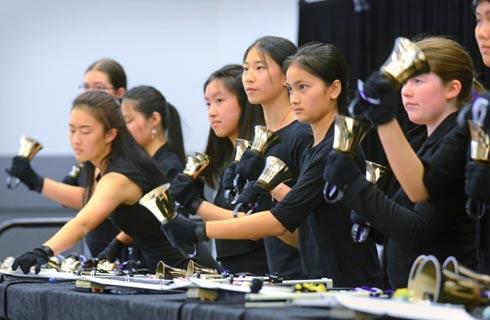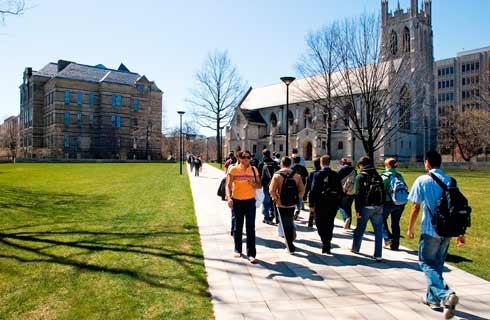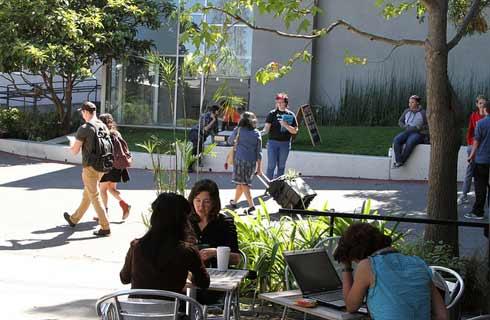理学副学士-生物学
Associate of Science - Biology

学历文凭
Bachelor Degree

专业院系
Faculty of Arts and Sciences

开学时间

课程时长

课程学费

国际学生入学条件
IDP—雅思考试联合主办方

雅思考试总分
6.5
- 雅思总分:6.5
- 托福网考总分:83
- 托福笔试总分:560
- 其他语言考试:PTE Academic(Pearson Test of English – Academic)-Required minimum mark: 56
CRICOS代码:
申请截止日期: 请与IDP联系 以获取详细信息。
课程简介
If you want to understand how life works and open the door to diverse career opportunities in the life sciences, consider an Associate of Science Degree - Biology at CapU.Biology is the science that explores and explains the life within and around us, investigating everything from how molecules move within cells to how ecosystems flourish in varied environments. This two-year associate's degree provides a firm foundation in the broad, exciting, and rapidly growing fields of life science.Our multidisciplinary and lab-focused curriculum emphasizes both the academic and applied skill sets you need to pursue opportunities in a range of fields including health, biotechnology, and conservation and resource management.
相关申请
 预科
预科 奖学金
奖学金 实习机会
实习机会 在校学习
在校学习 跨境学习
跨境学习 校园授课-线上开始
校园授课-线上开始 在线/远程学习
在线/远程学习
开学时间&学费
学费信息仅供参考,请与IDP联系以获取详细信息
| 开学时间 | 时长 | 学费 | 地点 |
|---|
关于卡普兰诺大学

卡普兰诺大学成立于 1968 年,是一所以教学为导向的大学,以提供世界一流的教育和充实的学习体验而著称。大学提供全面的学位、文凭和专业资格证书,以其卓越的教学和学生支持而享誉全球。大学位于加拿大不列颠哥伦比亚省最西部的第三大城市温哥华,是全北美最独特、最令人兴奋的学习地点之一。该地区以令人惊叹的自然美景著称,拥有数百公里崎岖的太平洋海岸线、常绿森林、高耸的山脉和 5000 多个岛屿。不列颠哥伦比亚省拥有丰富的户外活动文化,学生可以在夏季在该地区的国家公园徒步旅行、骑山地自行车或划独木舟,或在冬季享受世界一流的滑雪和冰雪运动。温哥华是加拿大人口最多、文化最多元的城市之一。温哥华地处沿海,四周群山环绕,是著名的电影拍摄地,电影业蓬勃发展,艺术和戏剧也十分繁荣。温哥华以其新鲜的本地海鲜而闻名,拥有现代化国际大都市的所有优势,拥有一流的餐厅、迷人的咖啡馆以及由众多酒吧、俱乐部和现场音乐活动组成的热闹夜生活。该市还以国际爵士音乐节和一年一度的樱花节而闻名,吸引着来自世界各地的游客。卡普兰诺大学约有 9958 名在校全日制学生,其中约有 4200 名国际学生,来自 92 个国家。除了大学的校友和专业合作伙伴网络外,毕业生的就业能力和职业力也通过与学习相结合的实习和工作经验机会得到了提升。
本校相关课程
其他相关课程

Doctor of Philosophy in Quantitative Biology
 德克萨斯大学阿灵顿分校
德克萨斯大学阿灵顿分校学历文凭
Ph.D.
开学日期
课程费用总额


Bachelor of Science in Biology - Pre-Dentistry / Biology
 俄勒冈州立大学
俄勒冈州立大学学历文凭
Bachelor Degree
开学日期
课程费用总额


生物学文学士-普通生物学
 鲍尔州立大学位
鲍尔州立大学位学历文凭
Bachelor Degree
开学日期
课程费用总额


理学副学士-生物学
 道格拉斯学院
道格拉斯学院学历文凭
Bachelor Degree
开学日期
课程费用总额


生物学理学学士
 ESLI International(针对三一西部大学)
ESLI International(针对三一西部大学)学历文凭
Bachelor Degree
开学日期
课程费用总额


Bachelor of Science in Biology - Environmental Biology
 费瑞斯州立大学
费瑞斯州立大学学历文凭
Bachelor Degree
开学日期
课程费用总额















